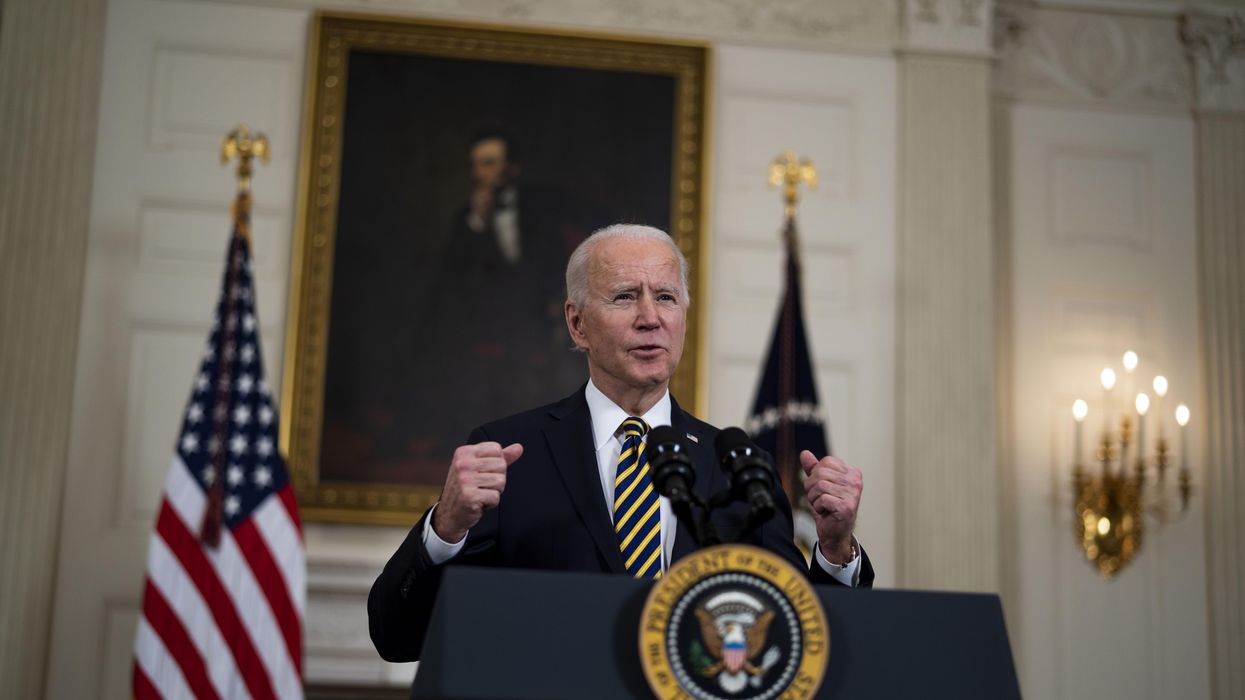Anderson edited "Leveraging: A Political, Economic and Societal Framework" (Springer, 2014), has taught at five universities and ran for the Democratic nomination for a Maryland congressional seat in 2016.
There were 240 million eligible voters in the United States last fall, and Joe Biden and Donald Trump each got approximately one third of their votes.
Biden got 34 percent of these people to cast a ballot for him, Trump 31 percent. But, because of the math of the Electoral College, Trump would have secured re-election had only a combined 44,000 voters switched to him in Arizona, Wisconsin and Georgia. Moreover, millions who cast their votes for Biden did not do so with passion, and the same holds for Trump.
So it's probably fair to say that half the electorate was not passionately behind one of the 2020 presidential candidates — the 80 million who decided not to cast a ballot at all, for starters, along with perhaps 40 million who voted for one candidate because they disliked, feared or hated the other one.
The new president and his fellow Democrats newly in control of Congress need to think seriously about these figures. After the latest economic rescue package is enacted, under special rules that will allow passage along party lines, the Democrats' immediate task is to figure out how to deal with the Republican minority, especially in a Senate where 40 members can block almost all legislation and the GOP holds 50 seats. But the larger task is to figure out how to build unity in the country.
Apart from wartime, it is always nearly impossible for the president and Congress, even if they are in the same party, to get 90 percent or even 80 percent of the country to stand for the same vision, values and policies. If Biden could get 70 percent or even 60 percent of adult Americans to approve of his leadership, that would be extraordinary.
"Here's the deal," as the president likes to say: Democrats in office need to stop assuming that they must convince Republicans across the country to agree with their proposals. Perhaps one in 10 people who identify as reliable GOP voters will be impossible to turn, because they are going to keep siding with the sorts of radicals who led the storming of the Capitol last month.
Instead, Democrats in power in Washington should start by addressing those Americans who did not vote for Trump last year because they did not vote at all. Many are moderates and independents, Most are what political scientists call "low information voters." And a good share are younger than 30.
Democrats next need to think about building support among perhaps 20 million Republicans who voted for Trump but do not buy his lies about losing only because of widespread election fraud. At the same time, the party must work to firm up commitments from those who voted for Biden not because they loved him but because they felt that they had to.The deal, in other words, is not to tell Republicans they need to get aboard the Democratic ship because it's the only boat leaving the dock. This is the wrong picture.
In short, building unity will be complicated, and therefore talking about it should not be in oversimplified terms. Indeed, it would be totally appropriate for Biden to commit to engaging those who stayed home, a solid share of Republicans who voted against him and those Democrats who voted for him without enthusiasm.
To that end, he may decide it makes sense to support election reform policies at the state or federal level. One example would be bids to end partisan gerrymandering in order to increase presidential turnout in very blue and very red states. Many voters in these places now feel their votes for Congress are meaningless because they live in districts that are a total lock for one party or the other. Similarly, they may not vote for president either, assuming their choice won't matter since their state is a sure thing for one of the candidates.
Getting Washington on the same page with the country is going to involve dealing with the people of the country using a different playbook than the one dealing with the people in Washington. Biden would do well to expand his concept of the citizens he needs to reach, and then use that vision to help orchestrate his efforts in Congress.
This can be done not only by the public policies he supports but also by the language he uses to talk to the country.
It's important to have creative policies. The key is to convince politicians, interest groups and the public that policies are needed — whether $1,400 payments to most people, federal child care subsidies, better health care, funding for vaccine distribution or jobs for young Americans.
What is needed above all is a more inclusive language — one that rejects simplistic binary distinctions pitting Democrats against Republicans, false dichotomies and master dualisms that distort the nature of the body politic.
The road ahead has immense challenges, especially as the entwined pandemic and economic crises fester. But dealing with these crises — along with our racial tension and changing climate — requires throwing out the cookie cutters that set Democratic voters against Republican voters and overstate the polarization of the country.
The polarization story the media has hyped in recent years provides the wrong framework for understanding what we need from our federal government. Biden, Vice President Kamala Harris, Speaker Nancy Pelosi and Senate Majority Leader Chuck Schumer need to stop looking at politics in terms of Democratic vs. Republican voters and Democratic vs. Republican politicians.
It's time for a more complex, realistic framework for creating a just society.




















